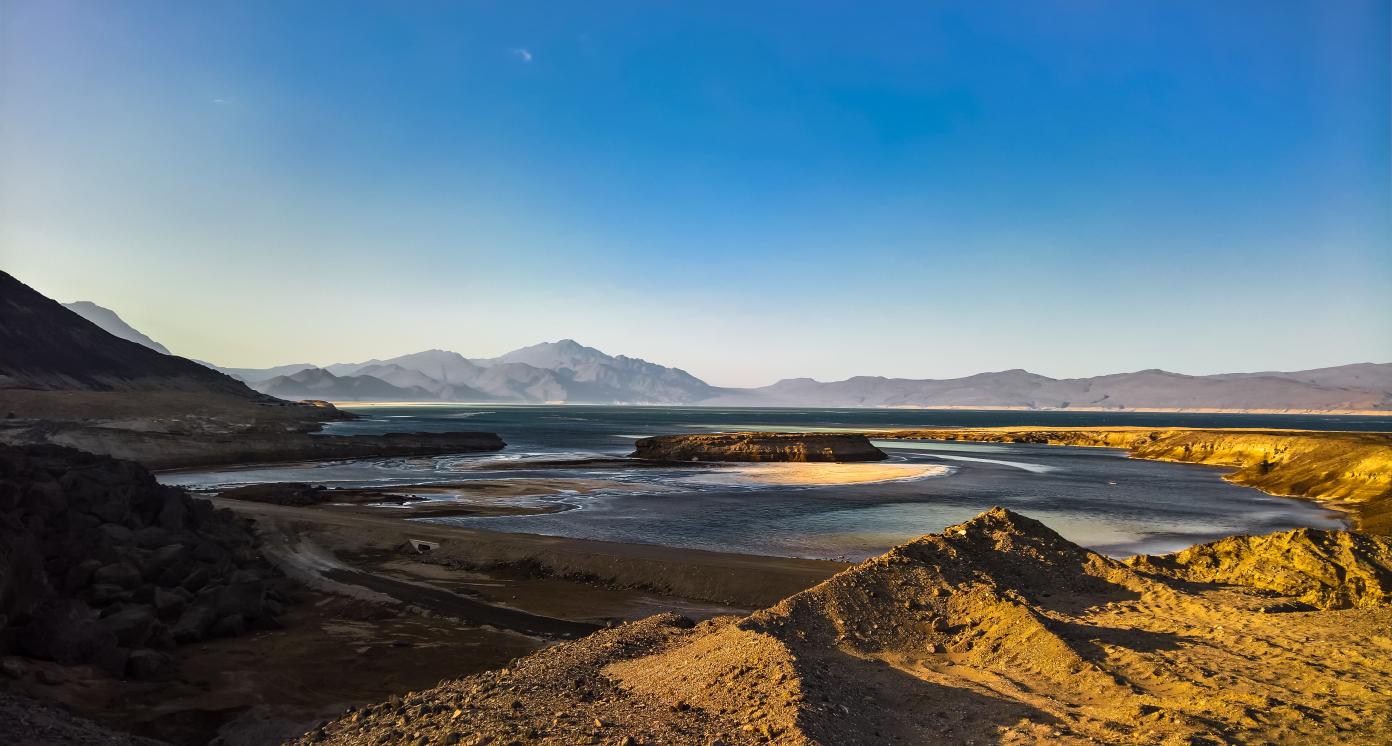Geothermal Power Plants
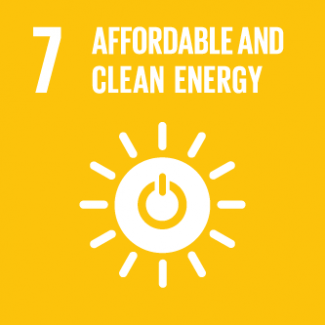
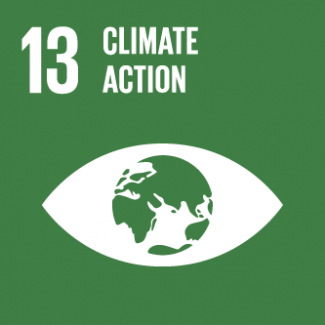
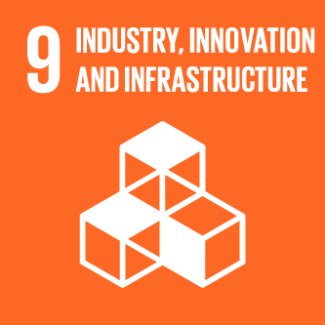
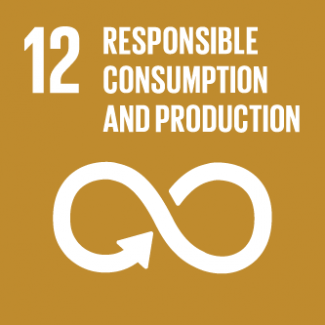
Business Model Description
Invest in or provide project financing for geothermal power plants, drilling and capacity building through public-private partnership (PPP) or independent power producer (IPP) schemes.
Expected Impact
Increase access to energy, enhance economic productivity, and reduce carbon emissions.
How is this information gathered?
Investment opportunities with potential to contribute to sustainable development are based on country-level SDG Investor Maps.
Disclaimer
UNDP, the Private Finance for the SDGs, and their affiliates (collectively “UNDP”) do not seek or solicit investment for programmes, projects, or opportunities described on this site (collectively “Programmes”) or any other Programmes, and nothing on this page should constitute a solicitation for investment. The actors listed on this site are not partners of UNDP, and their inclusion should not be construed as an endorsement or recommendation by UNDP for any relationship or investment.
The descriptions on this page are provided for informational purposes only. Only companies and enterprises that appear under the case study tab have been validated and vetted through UNDP programmes such as the Growth Stage Impact Ventures (GSIV), Business Call to Action (BCtA), or through other UN agencies. Even then, under no circumstances should their appearance on this website be construed as an endorsement for any relationship or investment. UNDP assumes no liability for investment losses directly or indirectly resulting from recommendations made, implied, or inferred by its research. Likewise, UNDP assumes no claim to investment gains directly or indirectly resulting from trading profits, investment management, or advisory fees obtained by following investment recommendations made, implied, or inferred by its research.
Investment involves risk, and all investments should be made with the supervision of a professional investment manager or advisor. The materials on the website are not an offer to sell or a solicitation of an offer to buy any investment, security, or commodity, nor shall any security be offered or sold to any person, in any jurisdiction in which such offer would be unlawful under the securities laws of such jurisdiction.
Country & Regions
- Djibouti: Dikhil
- Djibouti: Arta
Sector Classification
Renewable Resources and Alternative Energy
Development need
Only 55% of Djibouti's population has access to electricity. This is an obstacle to the development of the country because it affects the wellbeing of households and the productivity of corporates (1). The country experiences high energy demand driven by economic growth and the geographic expansion resulting from the rapid urbanization of the capital and regions (2).
Policy priority
The Horn of Africa Initiative prioritizes the development of regional energy markets, and the African Development Bank support the Ethiopia-Djibouti Second Power Interconnection project (29). Djibouti's Government, in partnership with Power Africa, has the goal of achieving 100% access to electricity within the Vision 2035, using exclusively renewable energy sources (3).
Gender inequalities and marginalization issues
Renewable energy globally employs about 32% women, compared to 22% in the energy sector overall (7), and expanding the sector can generate new jobs for women. Energy access for women also contributes to poverty reduction, saving time by substituting manual labor and reduces drudgery of fetching fuel wood and water, tasks typically women are responsible for. Access to energy also improves education, as it enables studying after sunset and greater flexibility in the organization of everyday chores (8).
Investment opportunities introduction
The Government is encouraging private-public partnerships to expand Djibouti’s renewable energy potential. This offers an opportunity for the private sector to fill the energy investment gap in the country within the renewable energy sector (5).
Key bottlenecks introduction
Slow implementation of the Independent Power Producers (IPPs) law, reliance on electricity imports, technical losses, weak supply infrastructure and over-reliance on the public sector are challenges Djibouti's energy sector faces (6).
Alternative Energy
Development need
Djibouti has significant unexploited potential in geothermal energy. The country has between 500 and 1,000 MW of geothermal reserves that can be exploited to address the energy gap experienced in large parts of Djibouti (8).
Pipeline Opportunity
Geothermal Power Plants
Invest in or provide project financing for geothermal power plants, drilling and capacity building through public-private partnership (PPP) or independent power producer (IPP) schemes.
Business Case
Market Size and Environment
Djibouti has 500-1,000 MW of geothermal reserve
Djibouti has between 500 and 1,000 MW of geothermal reserve, which is higher than the total installed production capacity of 126 MW (7).
Only 55% of Djibouti's population has access to electricity (1), which leaves 110,000 households without power (6).
Indicative Return
10% - 15%
The IRR for a benchmark project, the Sarulla Geothermal Power Plant in Indonesia, is 14-16% (9).
Investment Timeframe
Medium Term (5–10 years)
Geothermal electricity production is a capital intensive technology that needs 5-7 years to become operational from the start of the permitting process until commissioning (10).
Ticket Size
Typical costs for geothermal power plants range from USD 1,870 to USD 5,050 per kW, noting that binary plants are normally more expensive than direct dry steam and flash plants (8).
Market Risks & Scale Obstacles
Capital - CapEx Intensive
Business - Business Model Unproven
Impact Case
Sustainable Development Need
Only 55% of Djibouti's population has access to the electricity (25), leaving nearly half of the country with limited social and economic development opportunities.
Geothermal energy is a promising renewable energy source which has been proven to be reliable, clean and safe (18), addressing key challenges Djibouti's population is facing.
One important advantage of developing geothermal energy is the flexibility it provides in comparison to other renewable energy systems: it provides secure baseload power and is better suited to replacing the existing heavy fuel oil baseload power (14).
Gender & Marginalisation
In Djibouti, only 19% of women are employed, compared to 81% of men (30). Employment levels are generally lower in rural areas of the country since most of the economic activity is concentrated in Djibouti City.
Communities lacking access to electricity have lower opportunities to pursue productive opportunities, and women and children particularly suffer from unstable electricity supply.
Expected Development Outcome
Geothermal energy provides for improved access to energy resources for households through lower energy costs and reduced electricity outages.
Geothermal energy increases the share of renewable energy and reduces environmental footprint of power generation thanks to the lower use of fossil fuels in thermal power plants for energy generation.
Gender & Marginalisation
Geothermal power plants increases job opportunities especially for women, which stand at 19%, compared to 81% of men, in Djibouti (28). A 50 MW geothermal plant has the potential to generate over 1,500 jobs in construction and operation in Djibouti (14).
Primary SDGs addressed

7.1.1 Proportion of population with access to electricity
7.2.1 Renewable energy share in the total final energy consumption
As of 2018, 60% of Djibouti's population has access to the electricity (20).
Djibouti's renewable energy share in the total final energy consumption is 27.83% (19).
Djibouti aims to meet 100% of energy demand from renewable resources in line with Vision 2035. The initial goal was to reach the target by 2020 (14).
N/A

13.2.1 Number of countries with nationally determined contributions, long-term strategies, national adaptation plans, strategies as reported in adaptation communications and national communications
N/A
N/A
Secondary SDGs addressed


Directly impacted stakeholders
People
Gender inequality and/or marginalization
Planet
Corporates
Public sector
Indirectly impacted stakeholders
Planet
Corporates
Public sector
Outcome Risks
Geothermal power plants may require changes in land use associated with exploration and plant construction (23).
If not managed well, the geothermal power plants may lead to noise and sight pollution, discharge of water and gases, and production of foul odors (23).
Geothermal power plants may come with environmental concerns especially related to the risks of surface instability and earthquakes (15).
Impact Risks
If tariff levels for electricity generated from wind are not competitive against traditional energy sources, uptake by Djibouti's population may be limited.
If investors are discouraged from the limited commercialization progress with geothermal projects in Djibouti, or the lack of public support, the lack of investment may result in no or limited impact on energy security.
Impact Classification
What
Geothermal power plants increase access to clean and affordable energy, enhance economic productivity and reduce carbon emissions.
Who
Households without access to electricity benefit from improved energy security and access new income generating opportunities.
Risk
While the geothermal power model is proven, Djibouti's limited experience with the geothermal market and possible environmental externalities require consideration.
Impact Thesis
Increase access to energy, enhance economic productivity, and reduce carbon emissions.
Enabling Environment
Policy Environment
Djibouti Vision 2035, 2014: Outlines the Government's objective of achieving 100% access to electricity, using exclusively renewable energy sources, in partnership with Power Africa (25).
Strategy for Accelerated Growth and Employment Promotion (SCAPE) 2015-2019, 2014: Highlights the development and use of renewable energies, such as geothermal, as an important part of the energy priorities in Djibouti (22).
National Strategy and Five-Year Action Plan for the Development of the Electricity Sector, n.d / forhcoming: Provides the direction for the approach, responsibilities and sources of finance for conventional and decentralized electrification and for promoting renewable energy sources (20).
Financial Environment
Financial incentives: As part of the effort to increase electricity access by low income households, a new law is under preparation to lower connection fees from their present levels of USD 280-350 (14), which would Favour investors with expected higher numbers of potential customers.
Other incentives: The Government of Iceland pledged support to support the development of Djibouti’s geothermal resource. Reykjavik Energy will take project risk including exploration as an Independent Power Producer (IPP) and receive investment and return through a 20-year electric tariff (14).
Regulatory Environment
Decree No. 32, 2013: Sets up the Djiboutian Office for the Development of Geothermal Energy (ODDEG), which is in charge of developing partnership with Independent Power Producers (IPPs) and other stakeholders to ensure cost-effective development of geothermal energy and any associated products (32).
Decree No. 013, 2019: Provides the regulatory framework that aims to facilitate private investment in the sector of electricity production (16).
Law No. 186, 2017: Establishes Djibouti's Public-Private Partnership Act, which may be of relevance for geothermal power projects, following the Executive Decision No. 045 of 2016 to establish a committee on the creation of a national legal and regulatory framework of 2016 (27).
Marketplace Participants
Private Sector
Red Sea Drilling Company, KenGen, Reykjavik Energy.
Government
Ministry of Energy and Natural Resources, Ministry of Economy and Finance, Electricité de Djibouti, Djibouti Social Development Agency (ADDS), Djiboutian Agency for Energy Management (ADME), National Investment Promotion Agency.
Multilaterals
Islamic Development Bank (IsDB), Investment and Development Bank of the Economic Community of West African States, African Development Bank (AfDB), World Bank, Global Environment Facility, Geothermal Risk Mitigation Facility (GRMF), International Renewable Energy Agency (IRENA).
Non-Profit
French Development Agency (AFD), Centre for Studies and Scientific Research of Djibouti, University of Djibouti, Djibouti Chamber of Commerce.
Public-Private Partnership
The African Development Group's Geothermal Exploration Project in the Lake Assal region in 2013 was structure as a public-private partnership and was planned to be conducted in three phases of exploration, development of a station and expanding its capacities (21).
Target Locations
Djibouti: Dikhil
Djibouti: Arta
References
- (1) PNUD Djibouti. Plan Cadre des Nations Unies pour l'Aide de Developpement. 2018-2022. 2018. https://www.undp.org/sites/g/files/zskgke326/files/undp/library/corporate/Executive%20Board/2018/First-regular-session/DPDCPDJI3_UNDAF%20Final.pdf.
- (2) Ministère des Affaires Etrangères et de la Coopération Internationale. Evaluation a mis parcours du programme d'action d'Istanbul. 2015. http://unohrlls.org/custom-content/uploads/2015/12/Djibouti-National-Report-to-the-Midterm-Review.pdf.
- (3) The Business Year. Djibouti Embraces Renewables. 2020. https://www.thebusinessyear.com/djibouti-renewable-energy-investment-promises-50-percent-contribution-2-years/focus.
- (4) Ministère de l'Habitat, de l'Urbanisme, de l'Aménagement duTerritoire et de l'Environnement. Rapport National sur le development durable RIO+20. 2012. https://sustainabledevelopment.un.org/content/documents/1011DjiboutireportRio+20.pdf.
- (5) Republic of Djibouti. Strategie de croissance accelere et de croissance d'emploie. 2015. https://planipolis.iiep.unesco.org/sites/default/files/ressources/djibouti_scape-francais.pdf.
- (6) International Renewable Energy Agency (IRENA). Renewable Energy: A Gender Perspective. 2019. https://www.irena.org/publications/2019/Jan/Renewable-Energy-A-Gender-Perspective.
- (7) World Bank & PPIAF. Public-Private Partnerships Briefs Djibouti: Solar Rural Electrification. 2016. https://library.pppknowledgelab.org/documents/3532/download.
- (8) The Africa Report. Djibouti: Aiming to be first African country entirely reliant on green energy. 2021. https://www.theafricareport.com/79681/djibouti-aiming-to-be-first-african-country-entirely-reliant-on-green-energy.
- (9) USAID. Djibouti Power Africa Fact Sheet. 2020. https://www.usaid.gov/powerafrica/djibouti.
- (10) The Africa Report. Djibouti: Aiming to be first African country entirely reliant on green energy. 2021. https://www.theafricareport.com/79681/djibouti-aiming-to-be-first-african-country-entirely-reliant-on-green-energy.
- (11) International Renewable Energy Agency (IRENA). Geothermal Power Technology Brief. 2017. https://www.irena.org/-/media/Files/IRENA/Agency/Publication/2017/Aug/IRENA_Geothermal_Power_2017.pdf.
- (12) Climate Policy Initiative. Using Private Finance to Accelerate Geothermal Deployment: Sarulla Geothermal Power Plant, Indonesia. 2015. https://www.climateinvestmentfunds.org/sites/cif_enc/files/knowledge-documents/using-private-finance-to-accelerate-geothermal-deployment-sarulla-geothermal-power-plant-in-indonesia-_1.pdf.
- (13) European Union (EU) Geothermal Investment Guide. 2013. http://www.geoelec.eu/wp-content/uploads/2011/09/D3.4.pdf.
- (14) International Renewable Energy Agency (IRENA). Djibouti Renewables Readiness Assessment. 2015. https://www.irena.org/-/media/Files/IRENA/Agency/Publication/2015/IRENA_RRA_Djibout_2015_EN.pdf.
- (15) Energy Sage. Smarter energy decision. Environmental impacts of geothermal energy. 2021. https://www.energysage.com/about-clean-energy/geothermal/environmental-impacts-geothermal-energy.
- (16) Association internationale des juristes, AfricaDroit. Production of electricity in Djibouti – A new regulatory framework favoring renewable energy. 2019. https://africadroit.com/2019/09/13/production-of-electricity-in-djibouti-a-new-regulatory-framework-favouring-renewable-energy.
- (17) Republic of Djibouti. Plan de development rural de Dikhil. 2017. https://www.academia.edu/37693834/PLAN_DE_DEVELPPEMENT_RURAL_DIKHIL_final_08-03-2017.pdf.
- (18) Dursun Bahtiyar & Cihan Gokcol. The role of geothermal energy in sustainable development of Turkey. 2012. https://journals.sagepub.com/doi/pdf/10.1260/0144-5987.30.2.207.
- (19) UN Global SDG Database. SDG Indicators. 2021. https://unstats.un.org/sdgs/indicators/database.
- (20) Sustainable Development Report. Country Profiles: Djibouti. 2021. https://dashboards.sdgindex.org/profiles/djibouti
- (21) KenGen, Geothermal. 2021. https://www.kengen.co.ke/index.php/business/power-generation/geothermal.html.
- (22) Government of Djibouti. Strategie de Croissance Accélérée et de Promotion de l'Emploi. 2015. https://economie.gouv.dj/wp-content/uploads/de95d383afef8bcbe0a3bc609a7f5c76.pdf.
- (23) Lund, John W. Geothermal Energy - Environmental effects and economic costs. 2018. https://www.britannica.com/science/geothermal-energy/Environmental-effects-and-economic-costs.
- (24) African Development Bank (AfDB). Project Appraisal Report Geothermal Exploration Project in the Lake Assal Region. 2013. https://www.afdb.org/fileadmin/uploads/afdb/Documents/Project-and-Operations/Djibouti%20-%20Geothermal%20Exploration%20Project%20in%20the%20Lake%20Assal%20Region%20-%20Appraisal%20Report.pdf.
- (25) Republic of Djibouti. Vision Djibouti 2035. 2014. http://ccd.dj/w2017/wp-content/uploads/2016/01/Vision-Nationale.pdf.
- (26) UNEP. Energy Profile Djibouti. 2021. https://wedocs.unep.org/bitstream/handle/20.500.11822/20491/Energy_profile_Djibouti.pdf?sequence=1&isAllowed=y.
- (27) World Bank. Port Development and Competition in East and Southern Africa: Prospects and Challenges. 2018. https://documents1.worldbank.org/curated/en/963231561663013431/pdf/Country-and-Port-Fact-Sheets-and-Projections.pdf.
- (28) The Borgern Project. Women's right in Djibouti and what US is doing to help. 2020. https://borgenproject.org/womens-rights-in-djibouti.
- (29) Horn of Africa Initiative (HoAI). African Development Fund approves grants for $83.6 million to boost Ethiopia-Djibouti electricity trade. 2021. https://hoainitiative.org/african-development-fund-approves-grants-for-83-6-million-to-boost-ethiopia-djibouti-electricity-trade.
- (30) Office of Energy Efficiency & Renewable Energy. Environmental Impacts and Siting of Wind Projects. 2021. https://www.energy.gov/eere/wind/environmental-impacts-and-siting-wind-projects.
- (31) Afrik 21. Djibouti: KenGen to start geothermal drilling at Galla Le Koma by June. 2021. https://www.afrik21.africa/en/djibouti-kengen-to-start-geothermal-drilling-at-galla-le-koma-by-june/.
- (32) International Renewable Energy Agency (IRENA). Geothermal Development in Eastern Africa. 2020. https://www.irena.org/-/media/Files/IRENA/Agency/Publication/2020/Nov/IRENA_Geothermal_Eastern_Africa_2020.pdf.















